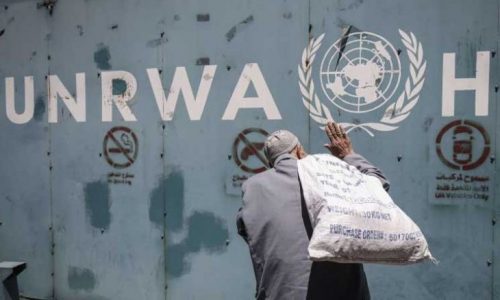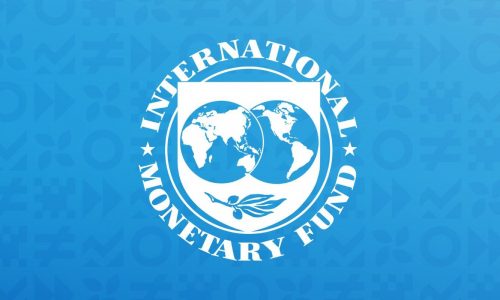The death of longtime al-Qaeda leader Ayman al-Zawahiri in late July in a U.S. drone strike in Kabul marked the end of an era. Zawahiri’s roots in the global jihad movement go back decades to his tenure with the Islamic Jihad in Egypt. He was one of the last veteran jihadists to work closely with Osama bin Laden. Zawahiri’s death will undoubtedly affect al Qaeda, but it is too early to know exactly whether the impact will be positive or negative. But beyond al-Qaeda itself, Zawahiri’s assassination could accelerate a trend that has become apparent in recent years – the factionalization and regionalization of the broader global jihadist movement.
Al-Qaeda, for its part, has confronted many years of relentless and competitive U.S.-led counterterrorism operations, which include drone moves and unique operations forces raids in opposition to its leadership. To survive, the institution followed a franchising strategy, which led it to extend worldwide, organizing nearby branches and associates withinside the Levant, North Africa, the Horn of Africa, the Arabian Peninsula, the Indian subcontinent, and beyond. While he become criticized broadly for missing air of secrecy and failing to encourage the subsequent era of would-be jihadists, Zawahiri must be credited for retaining the bulk of al-Qaeda`s franchises intact and constant to al-Qaeda central and keeping an experience of continuity from the perceived victories of the Afghan jihad which gave al-Qaeda its pedigree. Without his leadership, the company can also additionally have come to be overshadowed via way of means of its offshoots like Jama`at Nasr al-Islam wal Muslimin (JNIM), which pursue extra localized agendas. Although a few have cautioned that al-Shabaab is shifting withinside the contrary direction, more and more seeking to extend its operations outdoor of Somalia, Zawahiri`s demise may want to affect the trajectory of al-Qaeda franchise businesses as associates and branches reevaluate their respective techniques to attention extra immediately on their “near enemies”.
In 2014, IS stormed much of Iraq and Syria with astonishing efficiency. The blitzkrieg and propaganda campaign that fueled its success turned Al-Qaeda into a byproduct, and ISIS soon came to dominate the world’s jihadist movement. After capturing major cities in Iraq and Syria, its leader Abu Bakr al-Baghdadi consolidated control of the primitive state and proclaimed a caliphate, attracting an unprecedented number of tens of thousands of supporters from around the world. collected. The territorial caliphate has been defeated – ISIS lost its last territory in Baghz, Syria in the spring of 2019 – but like Al-Qaeda, ISIS is a regional franchise that swears an oath of allegiance to the Bayat, or state. It spread worldwide through the development of the group. head of the organization. The constant U.S. counter-terrorism campaign has forced IS to reconsider its options and strategies for its future growth and survival as an organization as its leaders have been ousted. At the same time, some counterterrorism measures continue to fuel complaints and situations that create a favorable environment for terrorist groups to recruit and regroup.
Both al-Qaeda and IS have focused resources on strengthening factions across Africa to take advantage of ongoing conflicts and government deficits to gain local and regional support. The center of gravity of the global jihadist movement was initiated in South Asia, where al Qaeda’s core was able to gain a foothold thanks to sympathetic regimes in Afghanistan and Pakistan. After the rise of IS, the main battlefield of the jihadist movement shifted to the Middle East. But there are strong arguments that by mid-2022, sub-Saharan Africa will become the epicenter of jihad. Despite the best efforts of several UN stabilization missions (although none had a clear counter-terrorism mandate or resources) and piecemeal efforts by many international counter-terrorism actors, Terrorist attacks against state and civilian targets are increasing in both frequency and sophistication. IS propaganda now routinely highlights successful operations in the Democratic Republic of the Congo (DRC), Mozambique, and the Sahel.
With core leaders of al Qaeda and ISIS in a weak state, jihadist groups across Africa are likely to claim more autonomy. Competing priorities, limited resources, and new opportunities could change the landscape for jihadists across Africa. However, highly localized regional agendas are not always sustainable. History shows that group goals can evolve. For example, in Algeria, the Islamic Armed Group (GIA) attempted to overthrow the Algerian government, but did not prevent the group from kidnapping, bombing, and attempted kidnapping, targeting French interests and citizens. The security environment in the region will continue to evolve as French and German militaries reconsider their troop involvement in the Sahel, and Russia and Russia-backed private military companies like the Wagner Group expand their roles. . The French withdrawal from Mali, which was completed earlier this week, creates an opportunity for jihadist groups to use the country as a haven if the Malian army and its Russian security partners fail to secure the country’s rural areas. It is possible that if a jihadist group were able to seize territory that could serve as a launch pad for regional or transnational terrorism, it would likely strengthen its ongoing counterterrorism operations in the region. Pressure on Western governments. This possibility could affect the decision-making of groups such as the JNIM and the Islamic State of West Africa (ISWAP) states. At the same time, counter-terrorism may be ineffective in the long run unless the structural conditions that create support for violent groups are addressed. Furthermore, the blurring of the lines between designated terrorist organizations and other non-state armed groups has led to the imposition of international and UN sanctions and embargoes on the grounds of al Qaeda’s ties to ISIL members. Questions need to be raised about the implications and benefits of imposing. A terrorist group that transcends national borders.
More than two decades after the attacks of September 11, 2001, and the creation of a complex international framework of institutions and laws to respond to an emergent transnational threat, the policy focus on counterterrorism has been subsumed by conventional conflicts, climate and a number of crises, including the fallout from the COVID-19 pandemic, supply chain disruptions, and food insecurity. While some governments have portrayed these as mutually exclusive priorities, they have underestimated the extent to which there has been an overlap between terrorism and geopolitics. At the same time, the diminished attention to counterterrorism can be seen as one measure of success in eliminating a transnational threat; it remains important however to invest in prevention and mitigation strategies.
Jihadist ideology of the kind propagated by al-Qaeda continues to resonate with many communities globally, fueled by a lack of political and economic progress, structural inequalities, and continuing sectarianism. Furthermore, new technologies offer jihadists additional advantages, including a greater ability to communicate undetected through end-to-end encryption, while sophisticated propaganda successfully radicalizes violent extremists in the West. Zawahiri shaped a global jihad, but with the decentralization that began under his leadership, the future of the movement may look very different. Possibly unprepared to meet the security challenges posed by increasingly powerful regional or local jihadist groups that are likely to profit from the prejudice of the United States and its allies toward a retaliatory Russia there is.








